QuestionToday, my 4 year old cat has been diagnosed by blood test to have diabetes Symptoms are exessive hunger, increased thirst, slight weight loss, tiredness and inceased urination I have had a cat before in this situation who I had to inject twice daily with insulin for around 2 years My question is what would I expect if I chose to not go ahead with the somewhat traumatic path of insulin injecting? How fast would I expect to see a deterioration in my cat? The Vet seems only wanting to pursue the insulin treatment path and gets a bit agro that I am hesitating I am just not sure what to do and would appreciate another person's input before I go back to the Vet this weekend and have my cat hospitalized until they work out the insulin dosages Thankyou for your time
AnswerCheri -
Sometimes diabetes can be managed with food, but that should be done under the supervision of your veterinarian. Perhaps your veterinarian is treating your cat's diabetes with insulin because the blood sugar is especially elevated.
If you do not treat especially high blood glucose, then you place your cat at risk for diabetic ketoacidosis - and the cat may become very ill. At that point, getting the blood glucose reading into the normal range can be very difficult. If your cat's blood glucose is only slightly elevated, there is the possibility that you can manage his diabetes with food. Again, I stress that this should be done only under the supervision of a veterinarian. There are prescribed foods that can lower your cat's blood glucose level very effectively. I have also found that feeding canned food can also play a role in helping to lower blood glucose level. Canned food is often much lower in carbohydrates than dry food - cats require more protein than carbs in their diets and canned food is often lower in carbs than dry cat food.
Managing blood sugar with insulin or food requires regular blood glucose checks and following the strict instructions of your veterinarian. If you are not comfortable following this vet's guidance on diabetes management, then please find another veterinarian that can help to manage your vat's diabetes.
Best Regards,
Charlotte Sherrell, DVM

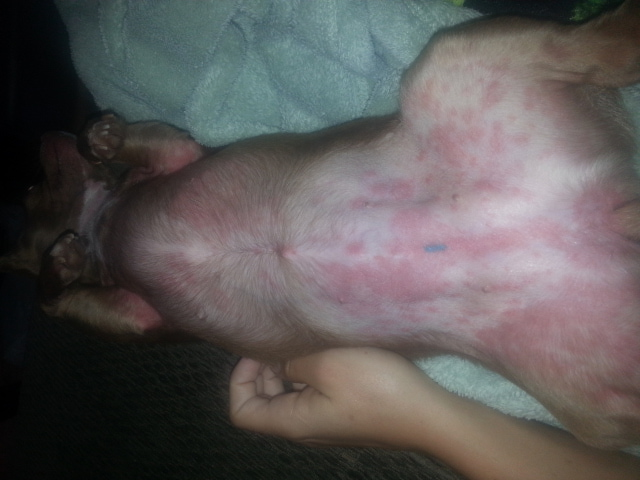 skin rash
Question
Chihuahua Rash chihuahua rash
My
skin rash
Question
Chihuahua Rash chihuahua rash
My
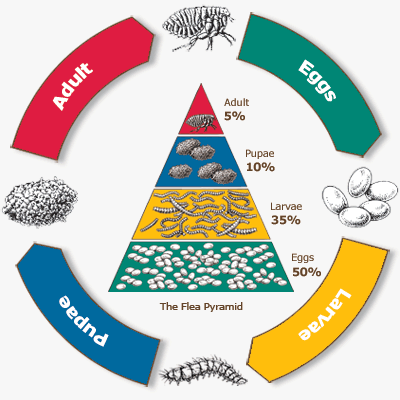 Cat Fleas
QuestionDo you possibly know of any way I can get rid o
Cat Fleas
QuestionDo you possibly know of any way I can get rid o
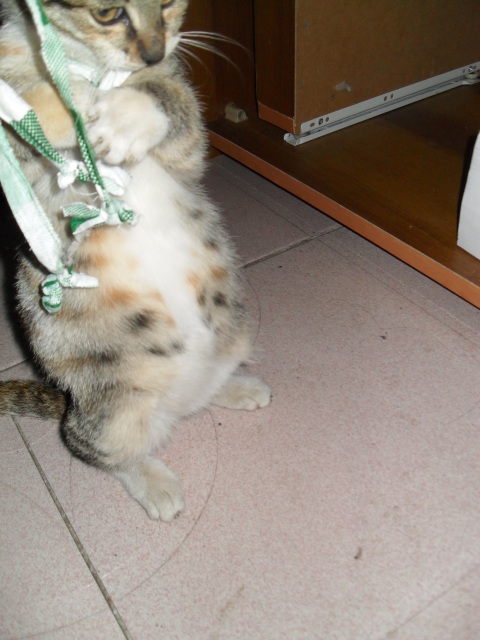 Feral cat with bloated stomach
Question
Cats stomach
Hello,
Id like some help with a
Feral cat with bloated stomach
Question
Cats stomach
Hello,
Id like some help with a
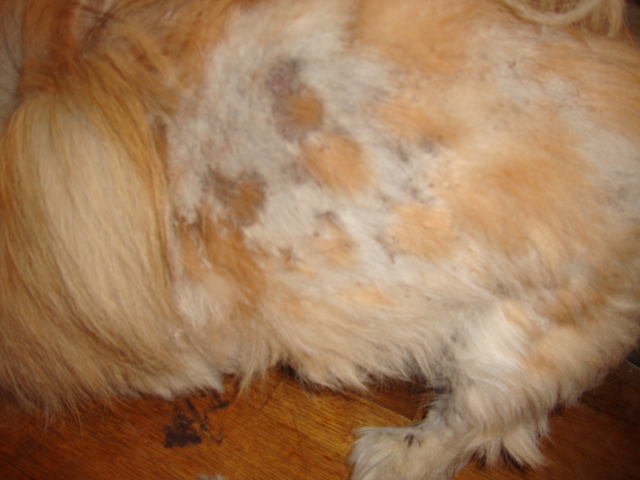 pekingese skin problems
Question
1 i have 4 more pic i
i was wonerin wat my ad
pekingese skin problems
Question
1 i have 4 more pic i
i was wonerin wat my ad
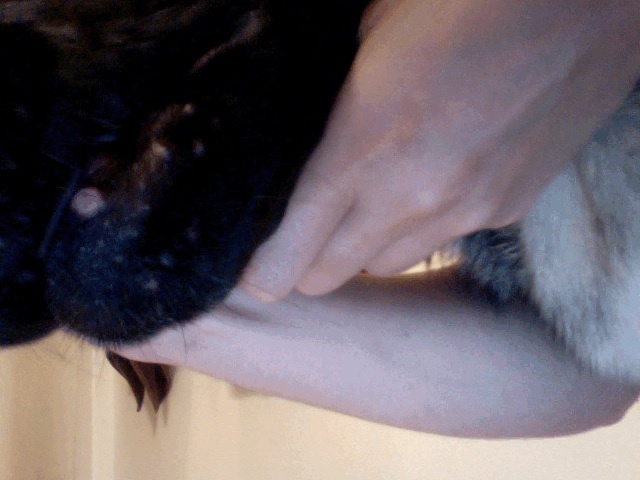 German Shepard has red sore on lip
Question
sore on charlies lip
The other day I no
German Shepard has red sore on lip
Question
sore on charlies lip
The other day I no